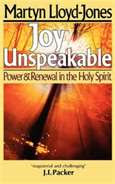Revelation 3:14-22
 |
| Laodicea, between Hierapolis and Colosse |
Monday, December 31, 2018 | 0 Comments
Revelation 3:7-13
 |
| Alașehir, Turkey on the site of ancient Philadelphia |
Thursday, December 27, 2018 | 0 Comments
Revelation 3:1-6
 |
| Sardis, capital of ancient Lydia |
Friday, December 21, 2018 | 0 Comments
Revelation 2:18-29
 |
| The stones in the foreground are from the castle, from which Akhisar was named |
Thursday, December 13, 2018 | 0 Comments
Ecclesiastes 12
Tuesday, December 11, 2018 | 0 Comments
Revelation 2:12-17
 |
| The Pergamos Altar in a German museum |
Thursday, December 06, 2018 | 0 Comments
Ecclesiastes 11
Monday, December 03, 2018 | 0 Comments
Revelation 2:8-11
 |
| Izmir, Turkey, with ancient Smyrna ruins in the center |
Saturday, December 01, 2018 | 0 Comments
Ecclesiastes 10
Friday, November 30, 2018 | 0 Comments
Revelation 2:1-7
Tuesday, November 20, 2018 | 0 Comments
Ecclesiastes 9
Monday, November 19, 2018 | 0 Comments
Ecclesiastes 8
Saturday, November 17, 2018 | 0 Comments
Revelation 1:14-18
Wednesday, November 14, 2018 | 0 Comments
Ecclesiastes 7
Monday, November 12, 2018 | 0 Comments
Revelation 1:12-13, 19-20
Friday, November 09, 2018 | 0 Comments
Ecclesiastes 6
Tuesday, November 06, 2018 | 0 Comments
Revelation 1:8-11
Saturday, November 03, 2018 | 0 Comments
Ecclesiastes 5
Tuesday, October 30, 2018 | 0 Comments
Revelation 1:4-7
 |
| Isle of Patmos |
Friday, October 26, 2018 | 0 Comments
















 Recommended Books
Recommended Books



